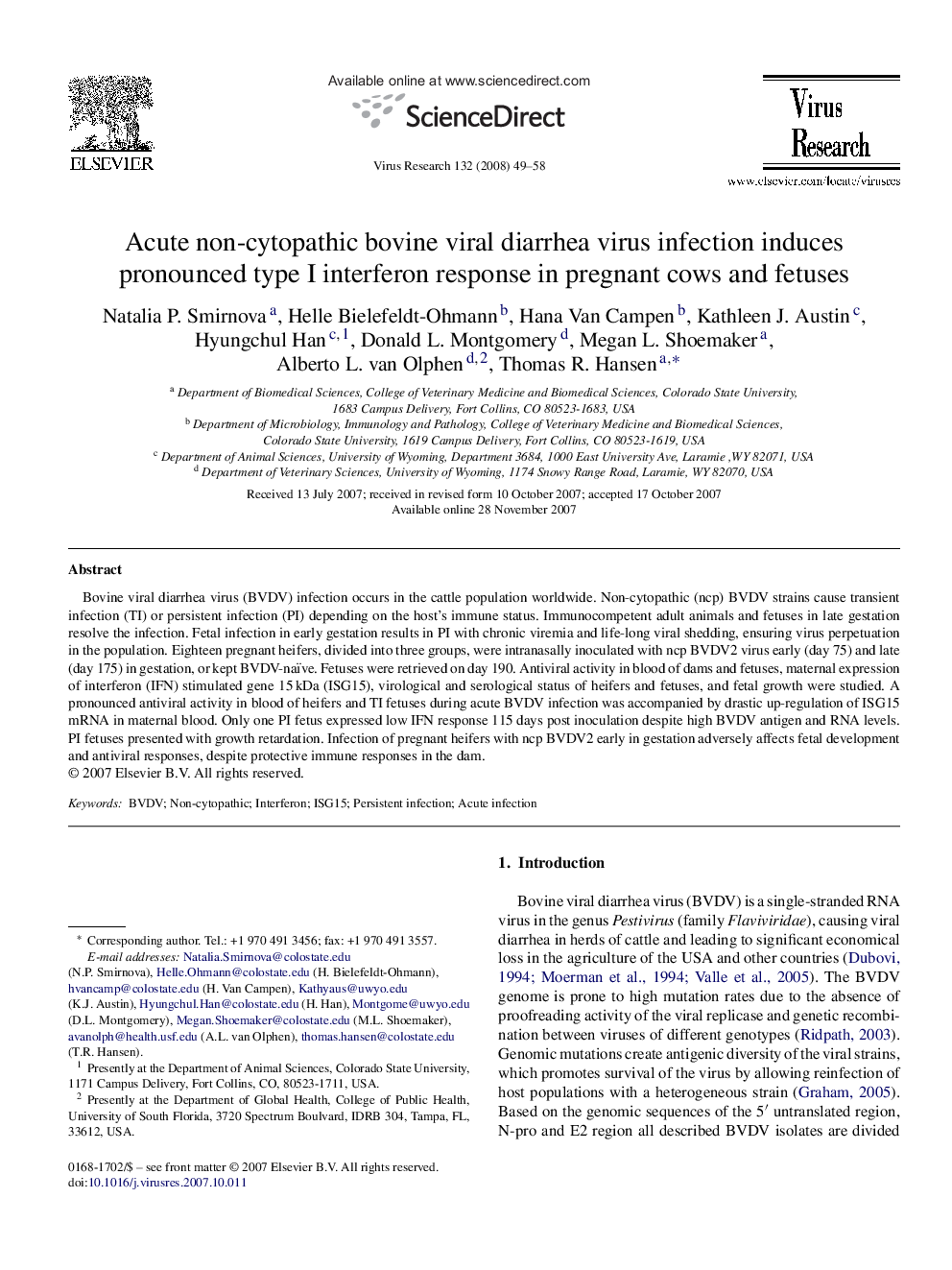| Article ID | Journal | Published Year | Pages | File Type |
|---|---|---|---|---|
| 3430509 | Virus Research | 2008 | 10 Pages |
Bovine viral diarrhea virus (BVDV) infection occurs in the cattle population worldwide. Non-cytopathic (ncp) BVDV strains cause transient infection (TI) or persistent infection (PI) depending on the host's immune status. Immunocompetent adult animals and fetuses in late gestation resolve the infection. Fetal infection in early gestation results in PI with chronic viremia and life-long viral shedding, ensuring virus perpetuation in the population. Eighteen pregnant heifers, divided into three groups, were intranasally inoculated with ncp BVDV2 virus early (day 75) and late (day 175) in gestation, or kept BVDV-naïve. Fetuses were retrieved on day 190. Antiviral activity in blood of dams and fetuses, maternal expression of interferon (IFN) stimulated gene 15 kDa (ISG15), virological and serological status of heifers and fetuses, and fetal growth were studied. A pronounced antiviral activity in blood of heifers and TI fetuses during acute BVDV infection was accompanied by drastic up-regulation of ISG15 mRNA in maternal blood. Only one PI fetus expressed low IFN response 115 days post inoculation despite high BVDV antigen and RNA levels. PI fetuses presented with growth retardation. Infection of pregnant heifers with ncp BVDV2 early in gestation adversely affects fetal development and antiviral responses, despite protective immune responses in the dam.
